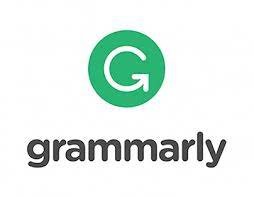Gamification: Quizizz in Mathematical Game Learning for Secondary Students
Abstract
Digital textbooks and online homework have made students used to classes without books. Technology in the classroom and exam administration helps retain students. Technology and non-traditional assessments are supported by pedagogy to improve student learning. Quizizz is a multiplayer educational game that makes classroom practice fun and interactive. This survey examined students' opinions of Quizizz for online math learning. It involved 45 students from a senior high school in Bulukamba, Indonesia. This study used a 10-question web-based survey to assess students' views on Quizizz's use in online mathematical learning. Quizizz improved students' attention spans, focus on the lesson, and comprehension even when they used it at home to study. Because it's easy to use, attractive, and like a game, students enjoy learning and retain more.
Keywords
Full Text:
PDFReferences
Bouzid, T., Kaddari, F., Darhmaoui, H., & Bouzid, E. G. (2021). Enhancing math-class experience throughout digital game-based learning, the case of Moroccan elementary public schools. International Journal of Modern Education and Computer Science, 13(5), 1 – 13.
Bromberg, L., & Seminelli, M. (2017). Effectiveness of Web-based Quizzes in Mathematics Courses. Journal for Research in Mathematics Education, 4(2), 1 – 10.
Calder, N., & Murphy, C. (2018). Using apps for teaching and learning mathematics: a socio-technological assemblage. Mathematics Education Research, 3 (July), 194-201.
Campilla, J., & Castanaga, A. (2021). Teaching Strategies Utilized by Mathematics Teachers in the 21st Century. International Journal of Sciences: Basic and Applied Research (IJSBAR), 59(2), 140-160.
Chen, Y. C. (2017). Empirical study on the effect of digital game-based instruction on students’ learning motivation and achievement. Eurasia Journal of Mathematics, Science and Technology Education, 13(7), 3177-3187.
Cohen, L., Manion, L., & Mirrison, K. (2013). Research Methods in Education Sixth Edition. In Routledge Taylor & Francis Group.
Connie, C. (2000). Teacher Perceived Impact of Technology on Elementary Classroom and Teaching. Journal of Digital Learning in Teacher Education, 7(2), 147-173.
Creswell, J. W. (2014). Research Design: Qualitative, Quantitative, and Mixed Method. In Research design Qualitative quantitative and mixed methods approaches.
Dahlan, T., Darhim, D., & Juandi, D. (2022). How Digital Applications as Mathematics Learning Media in the Automation Era. Journal of Positive …, (6(2), 199-211.
Etcuban, J. O., & Pantinople, L. D. (2018). The Effects of Mobile Application in Teaching High School Mathematics. International Electronic Journal of Mathematics Education, 13(3), 249-259.
George, S. (2020). Socrative in the Mathematics classroom. Journal of Digital Learning in Teacher Education, 3(1), 44-58.
Ginovart, M. (2021). Creating moodle quizzes for the subjects of mathematics and statistics corresponding to the first years in engineering studies. Journal Basic of Education, 4(2), 11-23.
Handican, r., & Setyaningrum, W. (2021). Developing a Mobile Game Using Scientific Approach to Support Mathematics Learning. Edumatika: Jurnal Riset Pendidikan Matematika, 4(1), 47-58.
Kenna, A. L. (2019). The impact of maths game based learning on children’s higher order thinking skills. Journal for Research in Math Education, 35(November), 67-71.
Lividas, K., Apostolou, Z., & Papadakis, S. (2022). Challenges and Opportunities of Mathematics in Digital Times: Preschool Teachers’ Views. Education Sciences, 12(7), 33-45.
Mahmud, M.S., & Law, M. L. (2022). Mathematics Teachers’ Perceptions on the Implementation of the Quizizz Application. International Journal of Learning, Teaching and Education Research, 21(4), 134-149.
Mohd. Yusof, N. A., & Shahrill, M. (2021). The Effects of Non-Digital Game-Based Learning on Students’ Mathematical Perspectives and Achievements. Southeast Asian Mathematics Education Journal, 11(1), 25-40.
Naseem, A. (2021). Effect of Quizzes on Anxiety and Performance in Mathematics at Middle Level. Bulletin of Education and Research, 43(1), 59-75.
Nejem, K. M., & Muhanna, W. (2018). The Effect of Using Computer Games in Teaching Mathematics on Developing the Number Sense of Fourth Grade Students. Educational Research and Reviews, 8(16), 1477-1482.
Novita, R., & Herman, t. (2021). Digital technology in learning mathematical literacy, can it helpful? Journal of Physics: Conference Series, 1776(1), 554-563.
Nurmawati, Masduki, L. R., Prayitno, E., & Dartani, M. Y. R. (2020). The Use of Interactive Multimedia in Improving Mathematics Learning Outcomes: The Case of the 4th Grade Students of SDN Manyaran 01 Semarang in the Academic Year of 2019/2020. Advances in Social Science, Education and Humanities Research, 417(Icesre 2019), 227-231.
Perez, M. E. del M., Guzman Duque, A. P., & Garcia, L. C. F. (2018). Game-based learning: Increasing the logical-mathematical, naturalistic, and linguistic learning levels of primary school students: Journal of New Approaches in Educational Research, 7(1), 31-39.
Purba, L. S. L. (2020). The Effectiveness of the quizizz Interactive quiz media as an online learning evaluation of physic chemistry 1 to improve student learning outcome. Journal of Ohysics: Conference Series, 1567(2), 16-20.
Rahaju, R., & Rahutami, R. (2018). Development of Communicative Character through Mathematics Learning – a Monopoly Game Based. Journal of Advanced Research Design, 4(28), 344-347.
Ramli, I. S. M., Maat, S. M. & Khalid, F. (2020) Game-based learning and Student Motivation in Mathematics. International Journal of Academic Research in Progressive Education and Development, 9(2), 449-455.
Rondina, J. Q., & Roble, D. B. (2019). Game-Based Design Mathematics Activities and Students’ Learning Gains. The Turkish Online Journal of Design Art and Communication, 9(1), 1-7.
Russo, J., Bragg, L. A., & Russo, T. (2020). How primary teachers use games to support their teaching of mathematics. International Electronic Journal of Elementary Education, 13(4), 407-419.
Serrano, K. (2019). The Effect of digital game-based learning on student learning: A the effect of digital game-based learning on student learning: A literature review literature review. Graduate Research Papers, 3(2), 943-956.
Setiyani, S., Fitriyani, N., & Sagita, L. (2020). Improving student’s mathematical problem-solving skills through Quizizz. JRAMathEdu (Journal of Research and Advances in Mathematics Education), 5(3), 276-288.
Setyarto, A., Murtiyasa, B., & Sumardi, S. (2020). Development 21st century skills in mathematics learning with steam in MTS N 2 Wonogiri. Universal Journal of Educational Research, 8(22), 5513-5528.
Varsavsky, C. (2019). Can online weekly quizzes contribute to learning in Mathematics? Journal of College Teaching & Learning (TLC), 3(2), 55-68.
White, K., & McCoy, L. P. (2019). Effects of Game-Based Learning on Attitude and Achievement in Elementary Mathematics. Networks: An Online Journal for Teacher Research, 21(1), 1-17.
Wijaya, A., Elmaini, & Doorman, M. (2021). A learning trajectory for probability: A case of game-based learning. Journal on Mathematics Education, 12(1), 1-16.
Wulandari, E. (2022). Quizizz application for English Learning: The students’ perception. Jurnal Pendidikan Dan Pengajaran (PAJAR), 6(3), 640-645.
DOI: https://doi.org/10.31002/ijome.v5i2.6588
Refbacks
- There are currently no refbacks.
Copyright (c) 2023 Indonesian Journal of Mathematics Education

This work is licensed under a Creative Commons Attribution-NonCommercial-ShareAlike 4.0 International License.

This work is licensed under a Creative Commons Attribution-NonCommercial-ShareAlike 4.0 International License.
Indexed by:
ISSN: 2654-3907 (print) | 2654-346X (online)
Jalan Kapten Suparman No.39, Magelang, Jawa Tengah, Indonesia 56116
Phone (0293) 364113 Fax. (0293) 362438
Website : http://jurnal.untidar.ac.id/index.php/ijome









